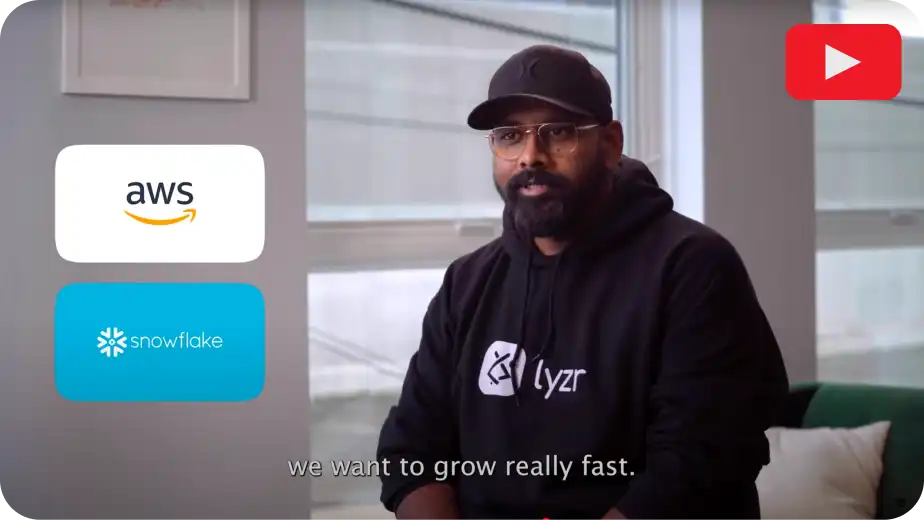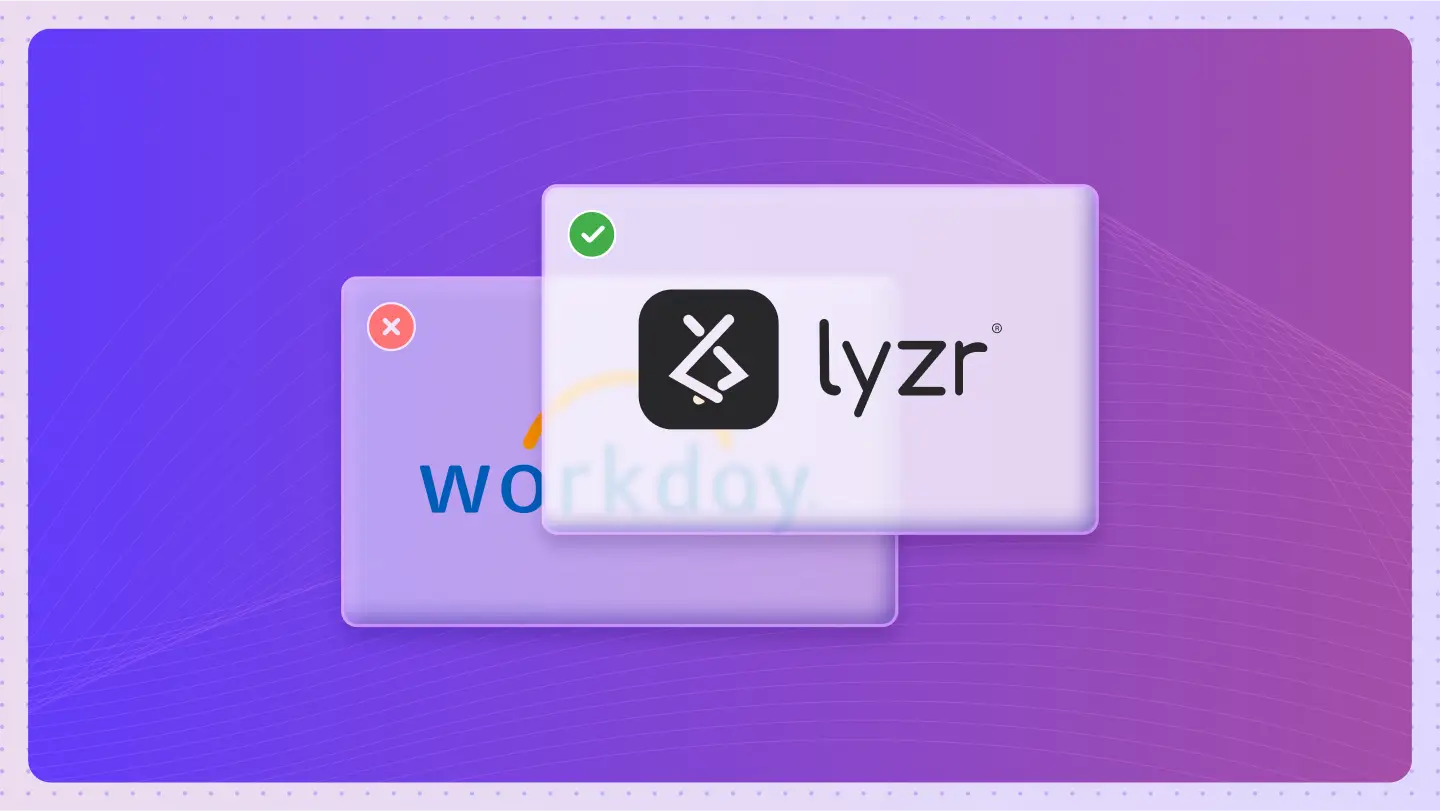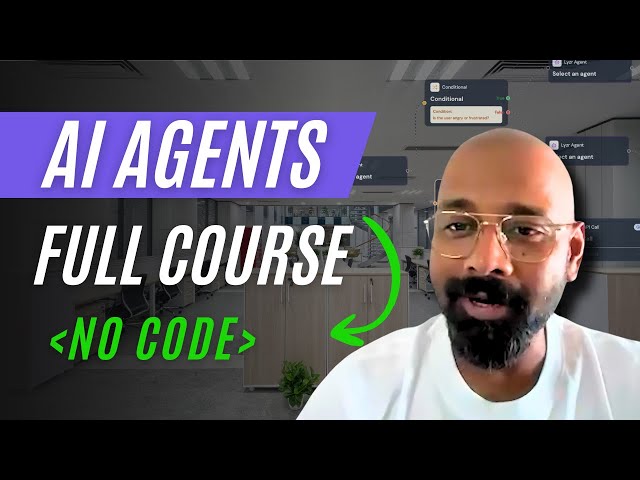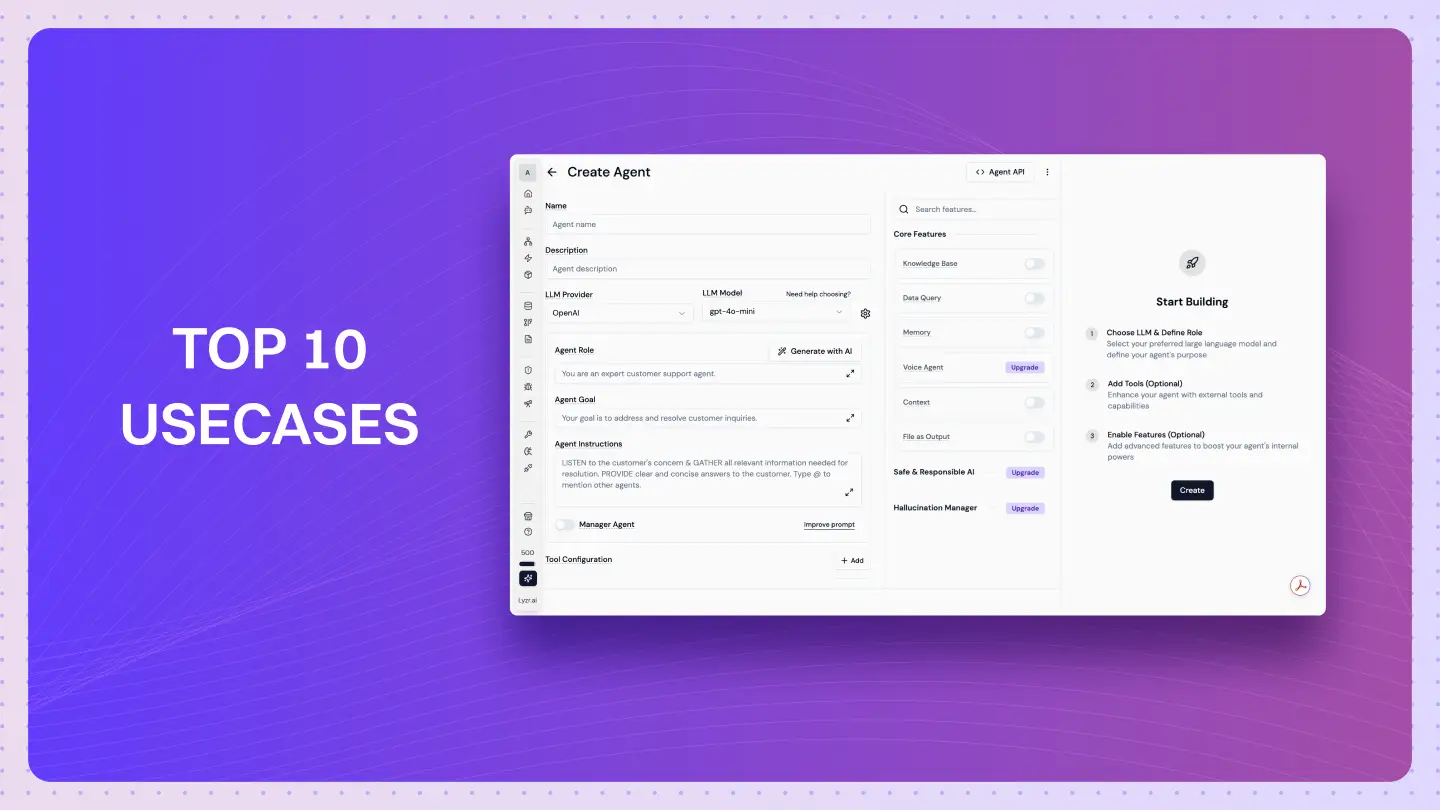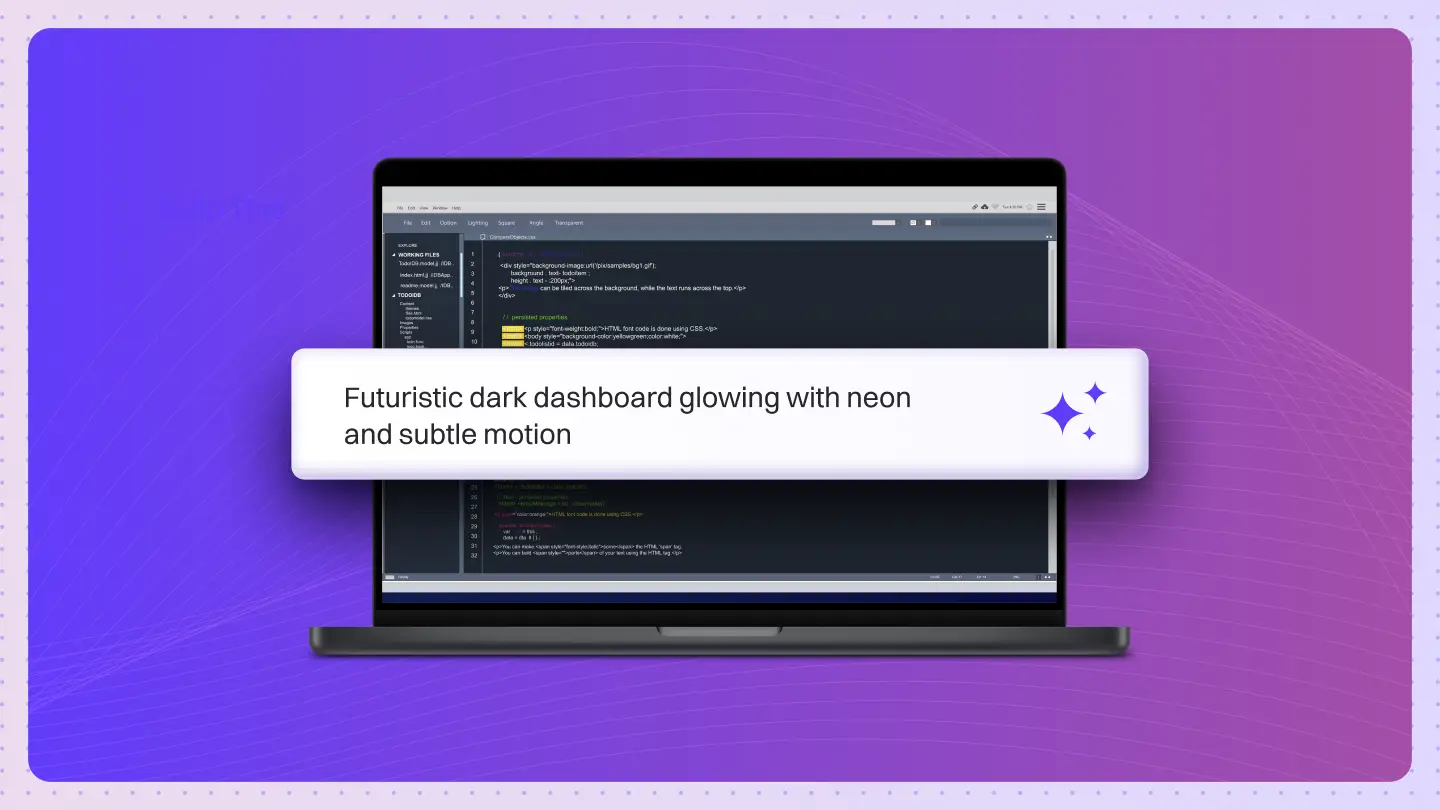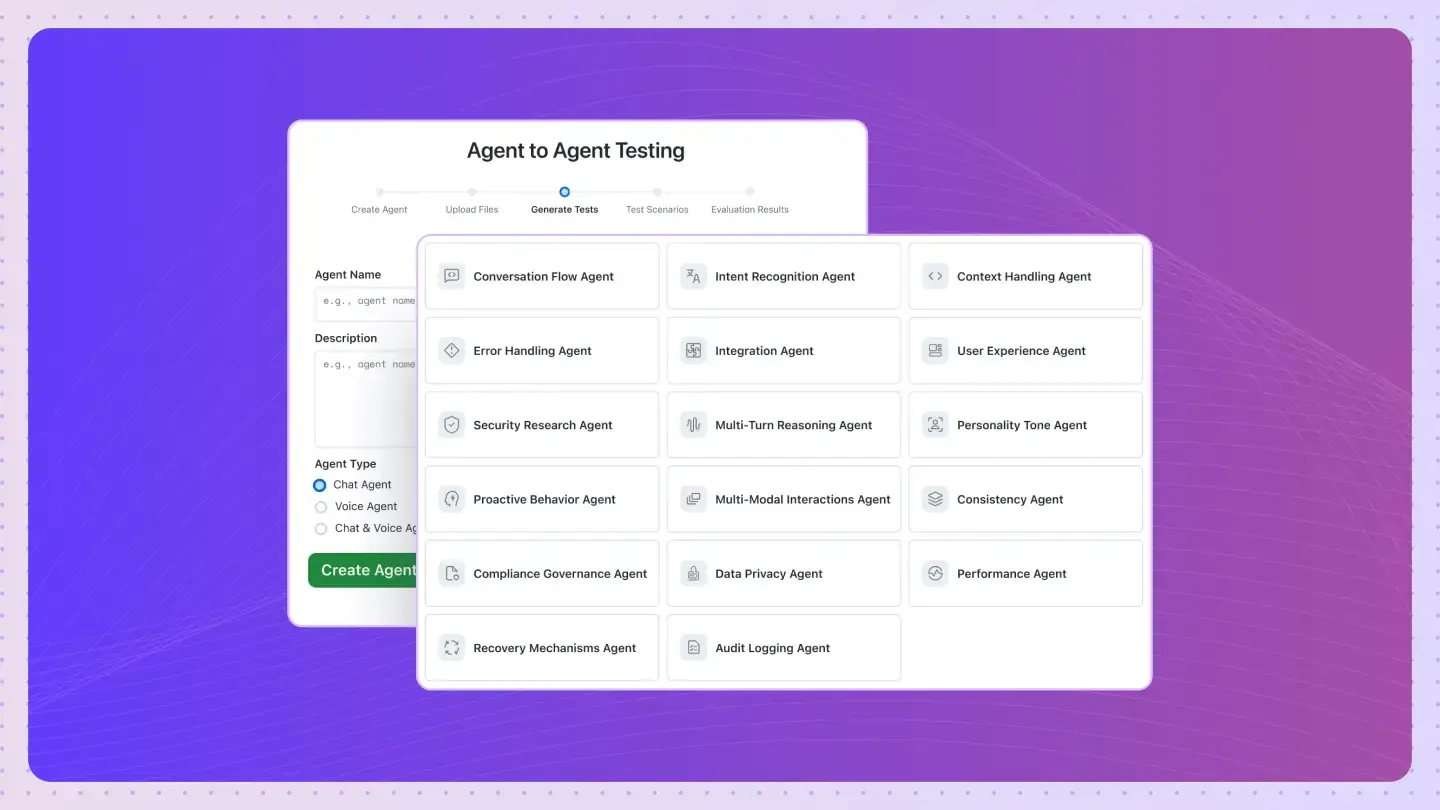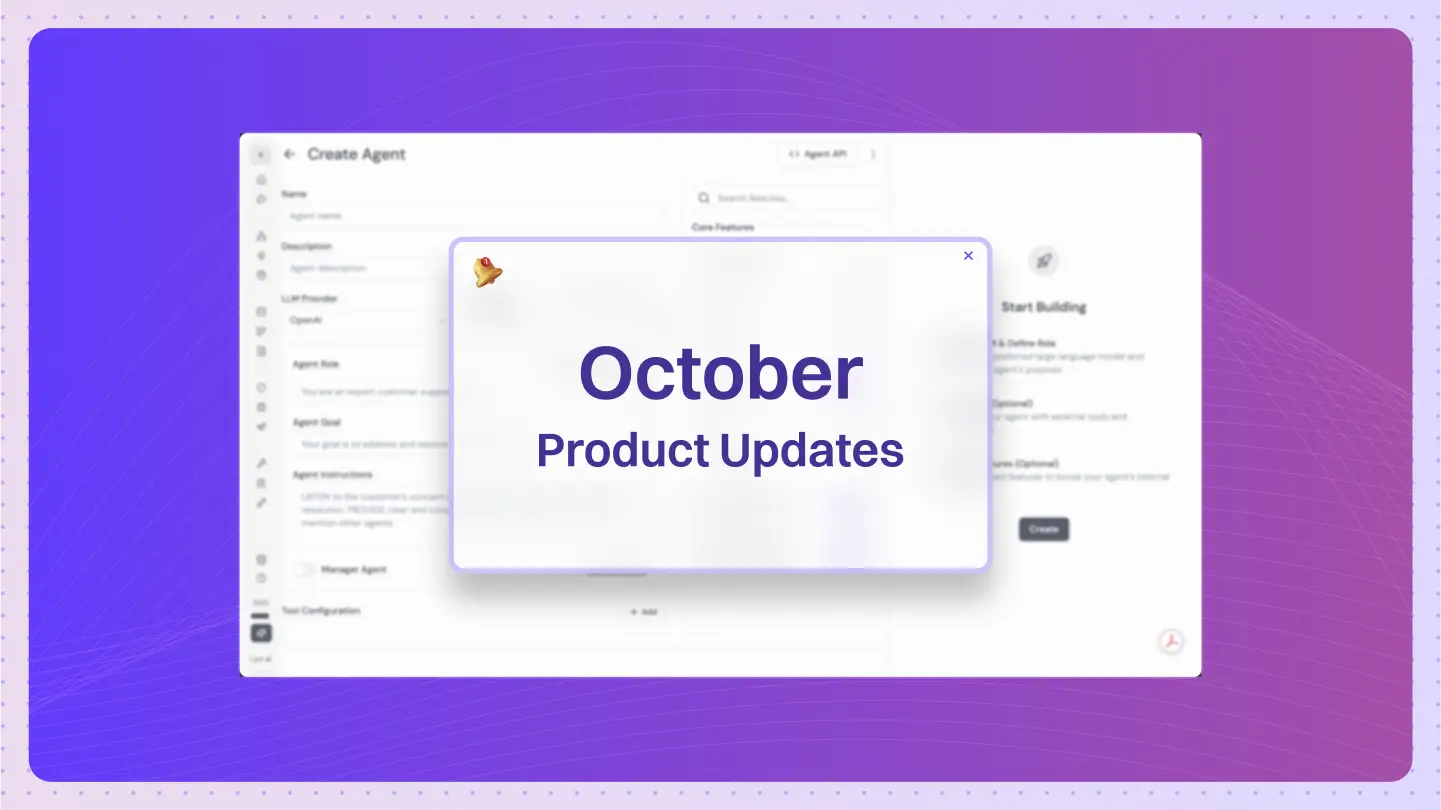Table of Contents
ToggleYou have a problem.
As a C-suite leader, you have made Artificial Intelligence a core business priority. You are part of the 85% of executives who believe AI will have a transformational impact on your business in the next five years. You have likely increased your GenAI investment this year. And yet, you are almost certainly frustrated.
Where is the real, measurable impact on your P&L?
If this feels familiar, you are not alone. You are experiencing the “Gen AI Paradox.” Recent McKinsey reports show that while nearly eight in ten companies have adopted GenAI, just as many report “no significant bottom-line impact.”
The conventional answer has been to deploy “horizontal” tools, like enterprise-wide copilots and chatbots. But these have delivered “diffuse, hard-to-measure gains.” Meanwhile, the high-value, “vertical” use cases, the ones that could actually transform your finance, HR, or operations, are stuck in “pilot purgatory.”
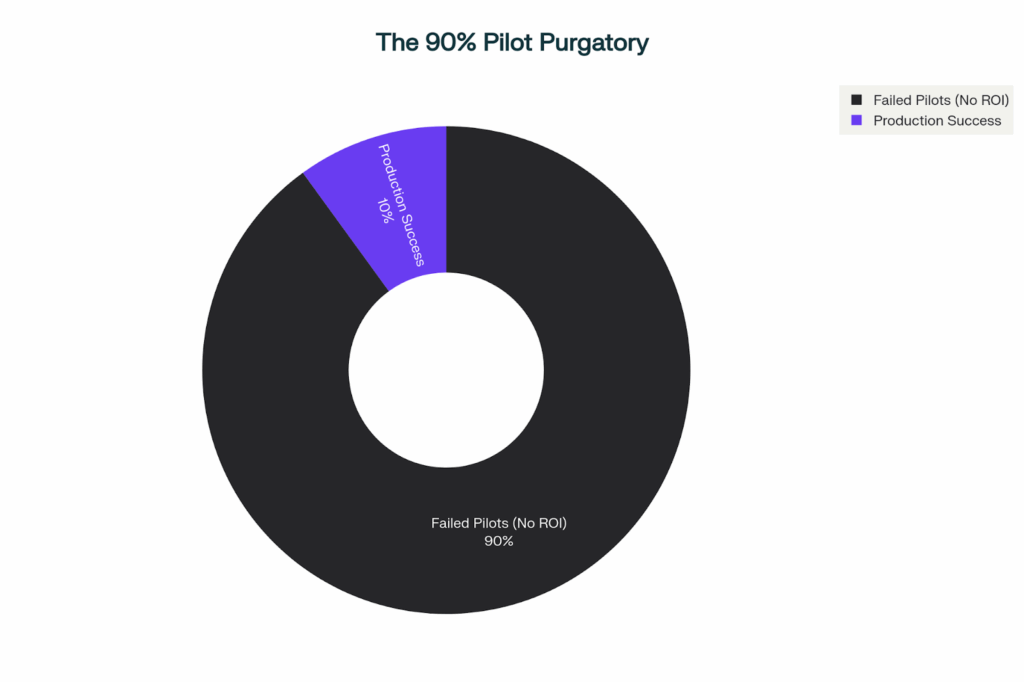
This is the core of the frustration. The market has given you AI parts, but not a factory.
The problem is not the AI. The problem is the platform. You cannot solve an enterprise-grade production challenge with a developer’s open-source framework or a simple SaaS automation tool. This is not a problem you can solve with a simple chatbot.
It’s a problem that requires a new class of platform, one built from the ground up to solve the enterprise barriers of security, governance, and scale. This brings us to the real question: what can you build with Agent Studio that is actually designed to get you out of pilot purgatory and into production?
The Critical Difference: Why Your Dev Framework Is Not an Enterprise Platform
The AI agent market is confusing. As a CTO, SaaS founder, or department head, your options seem to fall into two camps, neither of which is built for your end goal.
On one side, you have Open-Source Developer Frameworks. Think of LangGraph or CrewAI. These are powerful, flexible, and give your developers total control. But they are just engines. They come with a “lengthy custom setup.” They have no built-in governance, no security chassis, and no compliance framework. You must build your own. This is precisely why 90% of projects get stuck.
On the other side, you have SaaS Automation Tools. Think of Zapier AI or Dify. These are easy to use and great for simple, repetitive tasks. But they are a “fully cloud-based” solution where your data is managed by the vendor. This is a non-starter for any C-suite executive handling sensitive financial, legal, or HR data.
Lyzr Agent Studio provides the “Third Way” for enterprises. It is not just an engine or a tool. It is the complete, end-to-end factory.
It is the only platform that combines the flexibility of frameworks with the speed of SaaS, all built on an enterprise-grade chassis. Here is what makes Lyzr’s platform different:
- Enterprise Security & Deployment: Lyzr offers on-premise, hybrid, and Virtual Private Cloud (VPC) deployment. This is a critical distinction. Your data, your models, and your intellectual property remain 100% your property.
- Built-in Governance (The Core): This is what moves you from pilot to production. Lyzr is a governance platform first. It includes a built-in Responsible AI (RAI) layer to manage fairness, bias, and toxicity, and to automatically redact PII.
- Built-in Trust: You cannot deploy an agent you cannot trust. Lyzr’s Hallucination Manager achieves up to 99% verification accuracy by grounding every AI output against your verified data sources.
- Speed-to-Value: Lyzr provides a low-code platform and over 200 pre-built agent blueprints so you can go from idea to production in weeks, not quarters.
These “options” are not the same. Choosing an open-source framework means you are signing up for the massive, high-risk project of building your own governance and security layer from scratch. Lyzr’s platform provides the factory’s safety systems “as a service,” so you can focus on what matters: building agents that deliver value.
| Evaluation Criteria | Open-Source Frameworks (e.g., LangGraph) | SaaS Automation (e.g., Zapier) | Lyzr Agent Studio |
| Deployment Flexibility | Self-hosted only | Cloud-only (SaaS) | Cloud, On-Premise & VPC |
| Data/IP Ownership | Managed by setup | Managed by Vendor | 100% Customer Owned & Controlled |
| Built-in Governance (RAI) | None (Must build) | Limited (SaaS-level) | Built-in (Bias, Toxicity, PII) |
| Hallucination Control | None (Must build) | None (Model-dependent) | Built-in Hallucination Manager |
| Speed to Production | Slow (Custom dev) | Fast (Simple tasks) | Rapid (Low-code + Blueprints) |
| Scalability | Custom (Complex) | Limited (By plan) | Enterprise-Grade (Agent Mesh) |
The C-Suite Mandate: The True Enterprise Impact of Agentic AI
The shift required to break out of the “Gen AI Paradox” is specific. It is the shift from GenAI as a tool to Agentic AI as a workforce.
This is not just a change in terms. It is a fundamental change in capability.
A chatbot is reactive. It answers a question. An AI agent is proactive and autonomous. It can be given a complex, multi-step goal, like “process this invoice” or “onboard this new hire,” and it can plan, reason, and use other tools to execute that goal without human intervention.
This is the capability that will finally unlock the ROI you have been looking for.
The analyst predictions are unanimous and clear. Gartner states that “agentic AI will autonomously resolve 80% of common customer service issues… by 2029.” They also predict that by 2028, “33% of enterprise software applications” will include agentic AI.
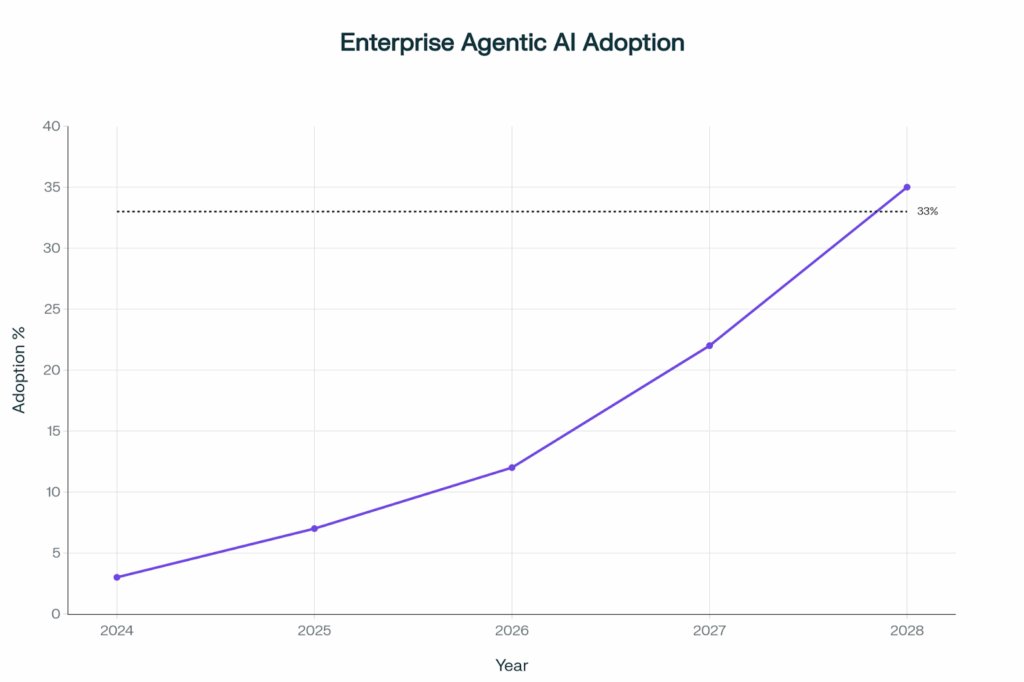
McKinsey’s analysis is even more direct on the P&L impact. They estimate that agentic AI will power “more than 60 percent of the increased value” from all AI deployments in marketing and sales. This is not just an efficiency gain; it enables “new revenue opportunities.”
So, what is the barrier? If the value is so clear, why are 90% of projects stuck?
The answer, as Forrester highlights, is that agents “need step-by-step instructions,” but enterprise knowledge is trapped in “poor process documentation,” “fragmented workflows,” and “undocumented data.” This is echoed by Gartner, which found that “57% of organizations estimate their data is not AI-ready.”
This is the final, crucial connection. An agent platform that cannot solve this knowledge and data problem is useless at scale.
This is why Lyzr’s architecture, built on a Hallucination Manager that requires grounding in verified data and an AgentEval feature to ensure truthfulness, is the key. It is the only architecture designed to solve the problem of messy, undocumented, and fragmented enterprise data. It is the enabling technology that makes scaling agentic AI possible.
10 Production-Ready Agents Your C-Suite Can Deploy Today
Here are 10 production-ready agents you can build, sourced from our library of use cases. These are not toys; they are vertical, high-value automations that deliver measurable impact.
1. Email Marketer Agent
This autonomous agent handles top-of-funnel outreach from start to finish. It conducts detailed prospect research to identify unique personalization points, then crafts and sends emails. More importantly, it manages the follow-up sequences and can autonomously book appointments, turning a cold list into a warm calendar.
2. Competitor Marketing Tracker
This marketing agent provides critical competitive intelligence by actively monitoring your competitors’ campaigns, messaging strategies, and overall digital presence. It automates the tracking process, ensuring you have up-to-date insights on market positioning and strategic moves without the hours of manual research.
3. Candidate Screening Agent
Streamline your hiring funnel with an agent that automates the most time-consuming part of recruitment. It evaluates applicants against specific job requirements, can conduct automated initial assessments, and even handle preliminary interviews, freeing your HR team to focus on high-quality, pre-vetted candidates.
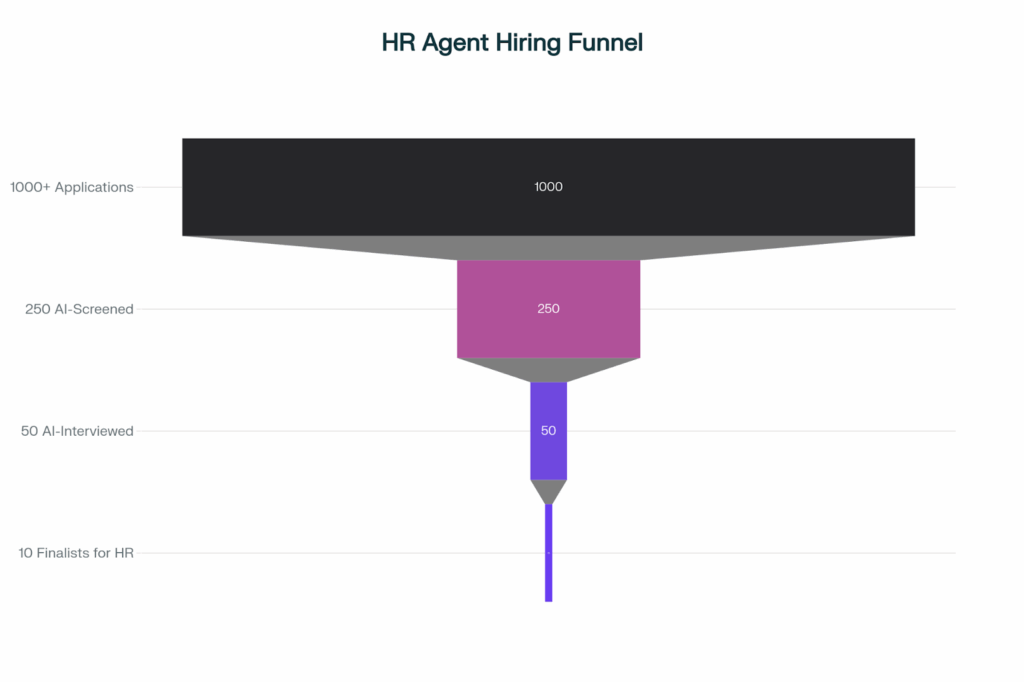
4. HR Helpdesk Agent
Functioning as your 24/7 Tier-1 support, this agent provides employees with instant, accurate answers to common HR questions about policies, benefits, and procedures. It integrates with your internal knowledge base and can intelligently route complex inquiries to the correct HR specialist, reducing ticket backlog and improving employee satisfaction.
5. AI RFP Scout (Procurement)
Never miss a critical opportunity. This autonomous agent proactively scouts and identifies relevant Request for Proposal (RFP) opportunities by monitoring and downloading documents from target websites. It goes a step further by preparing initial response materials based on the RFP’s requirements, giving your procurement and sales teams a significant head start.
6. Agreement Evaluator (Procurement)
This agent acts as an initial line of defense for your legal and procurement teams. It automatically reviews contracts and agreements for standard terms, flags compliance issues, and identifies potential risk factors. By highlighting concerns, it dramatically accelerates the contract review cycle and allows your human experts to focus on high-risk clauses.
7. AI Customer Support Agent
Elevate your customer service with an agent that resolves common issues from end to end. By integrating with your knowledge base and ticketing systems, it can understand customer problems, provide accurate solutions, and automate the ticketing process. This frees up human support agents for high-touch, complex escalations.
8. Customer Onboarding Agent
Ensure a smooth and successful start for every new user. This agent provides personalized assistance, guiding new customers through product setup, initial usage, and key features. It can automate training schedules and paperwork, ensuring a consistent and high-quality onboarding experience that boosts retention from day one.
9. No-code (Text-to-SQL) Analysis Agent
Democratize data across your organization. This powerful data analysis agent allows non-technical users to get complex insights by simply asking questions in natural language. It translates these questions into precise SQL queries, runs them against your database, and returns the answers, enabling data-driven business intelligence reporting for everyone.
10. Claims Processing Agent
Transform a core insurance function with AI. This agent automates the entire front-end of claims processing, from initial intake and document validation to the first-pass assessment. By handling this high-volume, repetitive work, it ensures accuracy, boosts automation, speeds up resolution times for customers, and allows claims adjusters to focus on complex cases.
Beyond the Top 10: Building Your Custom “Agentic OS”
Did you notice the pattern?
The most powerful, high-value use cases, like AI-driven email triage or the Invoice Matching system, were not single, siloed agents. They were Multi-Agent Systems (MAS): teams of specialized agents collaborating to automate an end-to-end process.
This is the true evolution beyond simple chatbots. A chatbot answers a question. A single agent completes a task. A multi-agent system automates an entire business process.
This is the ultimate vision. The 10 use cases above are not the end goal. They are just the first 10 applications you will build for your company’s private, autonomous “Agentic Operating System.”
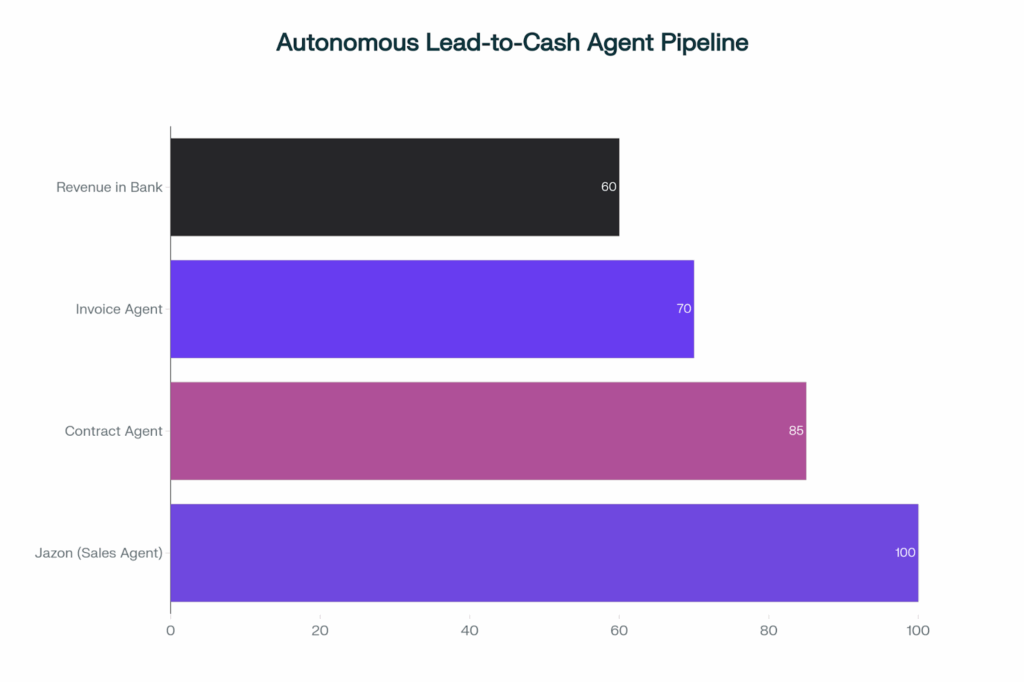
This is what the Lyzr Agent Studio is designed to build. It is the factory that allows you to:
- Build specialized agents in the low-code studio.
- Unify them on a central Knowledge Graph, solving the “fragmented data” problem.
- Connect them using Lyzr’s “Agent Mesh,” the secure, scalable communication layer that allows them to collaborate.
Imagine what this enables. Your Jazon sales agent autonomously gets a verbal “yes” from a lead. It triggers the Contract Review agent, which negotiates the NDA. Once signed, it triggers the Invoice Matching Agent to set up the first payment.
You have just built a fully autonomous, secure, and auditable lead-to-cash pipeline. That is the real enterprise impact.
Conclusion: Stop Experimenting. Start Automating.
The “Gen AI Paradox” is a choice, not an inevitability. It is the result of trying to build a production-grade factory using hobbyist-grade tools.
The platforms you used for experimentation, open-source frameworks and simple SaaS tools, are not the platforms you need for production. Production demands security. It demands governance. It demands a clear, auditable, and reliable path to scale.
Moving your high-value vertical AI agents from “pilot to production” is the single most important C-suite mandate for the next 18 months.
The Lyzr Agent Studio is the only platform built from the ground up for this exact purpose. With its on-premise deployment, built-in Hallucination Manager, and native Responsible AI governance, it is the solution for enterprises that are serious about moving beyond the pilot phase.
You have seen what you can build with an Agent Studio designed for the enterprise. The next step is to design the custom agent that will solve your most pressing business challenge.
Book a demo to move your first vertical use case from pilot to P&L-level impact.
Frequently Asked Questions on Building an AI Workforce
1. What is the main difference between AI agents vs. chatbots?
The key difference is autonomy and action. A chatbot is reactive; it follows a script or uses an LLM to answer questions within a chat window. An AI agent is proactive and autonomous. It can reason, create a multi-step plan, and use “tool-calling” to connect to other systems (like your CRM, email, or SAP) to independently execute a complex task to achieve a goal.
2. How do AI agents work for a business?
AI agents operate on a “perceive, plan, act” loop. A user gives the agent a goal (e.g., “process this invoice”). The agent perceives the data (reads the PDF), plans the necessary steps (e.g., 1. Extract amount, 2. Check PO in SAP, 3. Update QuickBooks), and acts by using tools (like APIs) to connect to those systems and complete the workflow.
3. What are the main benefits of AI agents for enterprises?
The main benefit is moving beyond simple productivity boosts to the full automation of complex, end-to-end business processes. This supercharges operational agility, enables deep personalization at scale, creates new data-driven revenue streams, and, most importantly, delivers a measurable, direct impact on your company’s P&L.
4. Can AI agents be customized for specific industries or tasks?
Yes, this is their primary strength. A platform like Lyzr Agent Studio is designed for deep customization. It provides pre-built, customizable blueprints for high-compliance industries like Finance, Insurance, HR, and Legal, allowing you to build agents that understand your specific business logic.
5. How does Lyzr Agent Studio handle AI hallucinations?
Lyzr solves this with its built-in Hallucination Manager. This is not just a simple check. It’s a robust system that uses Lyzr’s AgentEval feature to cross-reference every AI output against your verified data sources (like your knowledge base or policy documents), ensuring up to 99% verification accuracy and grounding all responses in truth.
6. How does Lyzr ensure enterprise data security and privacy?
This is a core, non-negotiable differentiator. Unlike most cloud-only tools, Lyzr offers flexible deployment options, including private cloud, on-premise, or VPC. This means your sensitive customer data, proprietary models, and valuable IP never leave your secure environment, ensuring 100% data privacy and control.
7. What is a multi-agent system (MAS)?
A multi-agent system (MAS) is a “team” of specialized AI agents that collaborate to solve a problem too complex for any single agent. For example, Lyzr’s email triage case study is a MAS: one agent manages the inbox, a second classifies the email’s intent, and a third connects to Salesforce to update the case file.
8. What is Lyzr’s ‘Responsible AI as a Service’?
It is a complete governance layer built directly into the Lyzr platform. It is not an add-on. It includes a Safe AI controller to monitor for bias, a Toxicity Controller to block harmful content, automatic PII Redaction to protect customer data, and an Explainability Layer to create a full audit trail. This ensures your AI agents are safe, fair, and compliant (GDPR, HIPAA) from day one.
9. Is Lyzr Agent Studio no-code or low-code?
Lyzr offers “No-Code to Full-Code Flexibility.” This means your business users (e.g., in marketing or HR) can start instantly with pre-built, no-code agent blueprints. Your technical teams can use the low-code studio or the full-code SDK to build, test, and integrate highly custom, complex agentic workflows.
10. How is Lyzr Agent Studio different from open-source frameworks like LangGraph or CrewAI?
Lyzr is an enterprise platform, not just a framework. Frameworks provide a “build-it-yourself” engine, which is slow and carries high risk. Lyzr provides a complete “factory”: a low-code UI, 200+ pre-built blueprints, secure on-premise deployment, and, most importantly, all the critical enterprise-grade governance (Responsible AI, Hallucination Management) built-in. This saves your team months of development and de-risks your entire AI strategy.
Book A Demo: Click Here
Join our Slack: Click Here
Link to our GitHub: Click Here




